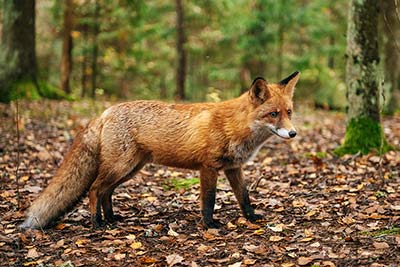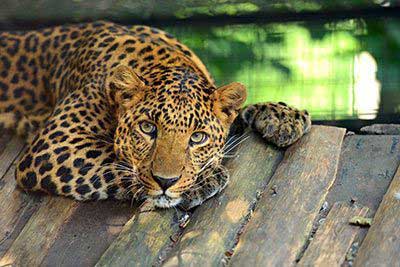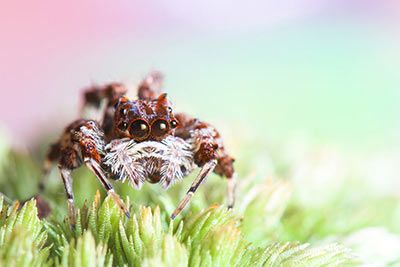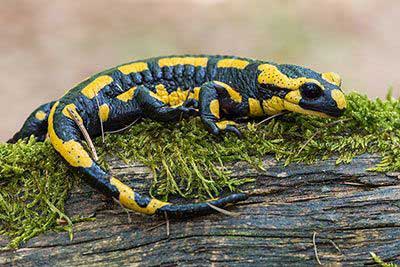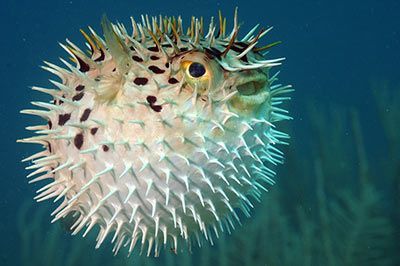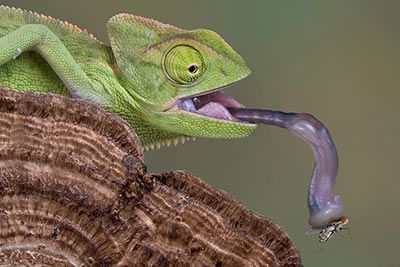Cold-Blooded and Warm-Blooded Animals
Why are some animals called cold-blooded? What’s does warm-blooded mean? What are the pros and cons?
Let’s start with the correct terms for these animals: "Cold-blooded" animals are called "poikilothermic". This is greek and means "varied heat". "Warm-blooded" animals are called "homeothermic". This is greek, too, and means "similar heat".

The Differences Between Cold-Blooded and Warm-Blooded Animals
The following table shows the difference between cold-blooded and warm-blooded animals regarding their characteristics and behavior:
| Characteristic, Behavior | Cold-blooded | Warm-blooded |
|---|---|---|
| Body temperature | Dependent | Independent |
| Feathers/fur | No | Yes |
| Need to feed | Irregular, low | Regular, high |
| Metabolism | Low | High |
| In heat | Look for shade/cool | Sweat |
| In cold | Look for heat/sun | Shiver |
| In winter | Not active | Active |
Warm-Blooded Animals
How Do Warm-Blooded Animals Maintain Their Body Temperatures?
It takes a lot of energy to keep their body temperatures the same all the time. How these animals get or save this energy:
• Feeding
Warm-blooded animals get energy from their food. A large portion of this is used to control body temperature. They have to eat more often than cold-blooded animals. Example: if you haven’t eaten for a long time, you might notice that you start to get cold and shiver. When you eat something, you get warmer.
• Feathers, fur and fat
Warm-blooded animals almost all have fur, feathers or a thick layer of fat. Some animals even get a thicker coat in winter, called their winter coat. It starts to grow when it gets colder outside and is shed again in spring. Dog owners will know all about this, as there will be much more hair lying around in shedding season.
Birds keep warm with their fluffy down. These feathers are so cozy and warm that they’re often used in winter coats. Marine mammals like whales have a thick layer of blubber to protect them from the cold.
What if It Gets Too Hot for Warm-Blooded Animals?
They sweat! Each animal does this in its own way. Dogs sweat using their tongues (panting). Elephants pump blood into their big, flat ears and flap them around.
Fun Fact
Not every warm-blooded animal has the same body temperature. Humans are 98.6 degrees Fahrenheit (37 degrees Celsius), horses 100.4 degrees Fahrenheit (38 degrees Celsius), dogs 102.2 degrees Fahrenheit (39 degrees Celsius) and birds 107.6 degrees Fahrenheit (42 degrees Celsius).
Cold-Blooded Animals
- Class: Fish, Amphibians, Reptiles, Insects, Invertebrates
- Characteristic: changing body temperature (depends on their surroundings)
How Do Cold-Blooded Animals Maintain Their Body Temperatures?
Cold-blooded animals cannot control their own body temperatures. They adapt to the temperature of their surroundings. When it’s very cold outside, their body temperature decreases. When it’s very warm, it increases. These animals aren’t very active in the cold, as it would take up too much energy. They need energy from the sun in the form of heat. That’s why you can see reptiles and amphibians basking on rocks to actively increase their body temperature. If they get too hot, they withdraw to a cave.
What if It Gets Too Cold for Cold-Blooded Animals?
In winter, cold-blooded animals hibernate. They breathe very slowly, have a very low heart rate and don’t eat anything. In spring, the animals can move again. This type of hibernation is called brumation. The wood frog is especially impervious to cold. It can survive in 21.2 degrees Fahrenheit (-6 degrees Celsius)!
- Watch Now on animalfunfacts.net:
-
 All About Hibernation
All About Hibernation -
 All About Amphibians
All About Amphibians

